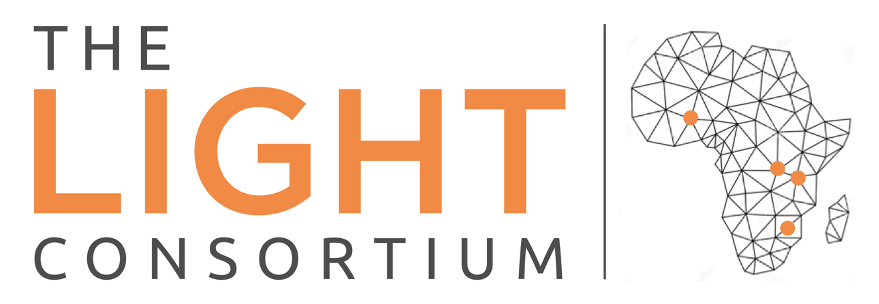
Eradicating Tuberculosis: New Initiative To Reach The Most Vulnerable
Published on: Aug 5th, 2020
A consortium of international, regional and national health research and policy organisations working in Africa and the UK have announced collaborative work on a new DFID-funded Research Programme to improve equitable gender sensitive pathways to quality TB healthcare. The work will create an enabling and supportive environment for the introduction and scale-up of new TB diagnostics, treatments and vaccine as they develop to meet global targets to eradicate TB.
The Research Programme, called Leaving no-one behInd: transforming Gendered pathways to Health for TB (LIGHT), is led by the Liverpool School of Tropical Medicine (LSTM) in the UK. LIGHT will tackle both the root causes of –and responses to – gender-related barriers to access relevant interventions. The multi-country Research Programme will be implemented among affected populations living in urban areas in Nigeria, Kenya, Uganda and Malawi. Evidence generated will inform better gender-sensitive and pro-poor policies to enable better access to TB care.
In Low and Middle-Income Countries, two thirds of TB infections are recorded among men who go undetected and untreated, a situation that impacts negatively on women, children and efforts to control the epidemic as a whole. “Sub-Saharan Africa is experiencing rapid growth in cities where TB and HIV burdens are high. Urban areas also experience high levels of poverty and inequity, and there exist substantial gender gaps in disease burden,” explains Dr Eliya Zulu, Executive Director at the African Institute for Development Policy (AFIDEP).
According to Professor Bertie Squire, Dean of Clinical Sciences and International Public Health at LSTM and Research Director of the Programme “There is increasing evidence that global efforts to end the TB and HIV epidemics are undermined by under-diagnosis, under-treatment and under-reporting, especially among men, who contribute to continuing disease transmission, including to women and children. It is essential that we find transformational ways to End TB by ensuring that drugs, vaccines and diagnostics are targeted in the right ways to ensure they can have maximum impact. We are delighted to have been awarded this funding and anticipate deploying almost £8m strategically over the coming six years, increasing the returns on investments in research and development for new TB technologies.”
LIGHT will be implemented by a multidisciplinary team of health and research uptake experts who will devise and implement optimal access strategies to prevent, detect and treat TB using health and non-health sector approaches. This will result in a new evidence-base on options and approaches to maximise equitable and gender responsive access to healthcare services for TB in urban, HIV-prevalent settings.
With the COVID-19 pandemic, attention and resources are bound to shift and this will see an increased burden in other lung health diseases, leaving the already vulnerable populations worse off. The situation calls for more sustainable interventions than we have had in the past. The new Research Programme hopes to achieve sustained acceleration in the attainment of global TB goals in sub-Saharan Africa by securing changes in policy and practice toward value-for-money, gender sensitive and pro-poor TB interventions.
In Nigeria, LIGHT will be implemented in collaboration with the Zankli Research Centre, which is domiciled in the Bingham University, Karu, Nasarawa State, Nigeria. Dr John S. Bimba is the head of the centre and in response to the take-off of the new research programme said: “We are certainly prepared to explore all components of this grant in line with the contract to look at the skewed gender burden of TB and HIV in Nigeria, and examine it closely, dispassionately and chart a novel approach towards addressing it collaboratively with stakeholders.” The Vice-Chancellor, Bingham University, Prof W.B Qurix (OFR), has shown his support for this international collaboration and according to him, “this grant comes at a critical time when the world is focusing on finding a solution to the ravaging Covid-19 Pandemic, which challenges lung health.”
TB has infected about a quarter of the world’s population and in 2018 is estimated to have caused 10 million people to fall ill, killing 1.4 million. TB is the world’s deadliest infectious disease, a source of one-third of global antimicrobial resistance deaths and the leading cause of death among people living with HIV. Despite commitment to ambitious global targets to end the TB pandemic by 2035, the pace of decline is not fast enough to reach these targets and could be derailed by the spread of COVID-19.
It’s Time to end TB.
About LIGHT
LIGHT is a consortium led by LSTM and funded with UK aid from the UK government. The Research Programme will generate a new evidence-base on options and approaches to maximise equitable and gender sensitive access to healthcare services for TB in urban, HIV-prevalent settings.
LIGHT is a consortium of leading organisations working in global health, led by the Liverpool School of Tropical Medicine (LSTM), with the African Institute for Development Policy (AFIDEP)(link is external), Respiratory Society of Kenya (RESOK(link is external)) –[ formerly Kenya Association for the Prevention of Tuberculosis and Lung Disease (KAPTLD)], Makerere University Lung Institute (MLI)(link is external), Zankli Research Centre (ZRC)(link is external), Malawi-Liverpool-Wellcome Trust Reseach Programme (MLW)(link is external) and the London School of Hygiene and Tropical Medicine (LSHTM).

